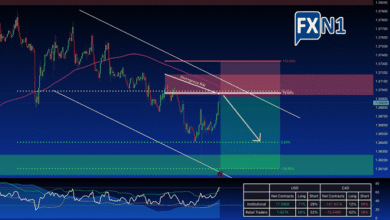Forex Banks: A Comprehensive Guide

Introduction
The forex market, or foreign exchange market, is the largest financial market in the world. At the heart of this bustling market are forex banks, which play a crucial role in facilitating currency trades. Whether you’re a seasoned trader or a beginner, understanding how forex banks operate can significantly enhance your trading strategies and outcomes. This comprehensive guide will delve into the intricacies of forex banks, their functions, and how you can utilize them to optimize your trading.
What are Forex Banks?
Forex banks are financial institutions that provide foreign exchange services to individuals, businesses, and governments. These banks are pivotal in the global currency market, offering a wide range of services, including currency conversion, international payments, and forex trading platforms. By understanding the services offered by forex banks, traders can better navigate the forex market.
The Role of Forex Banks in the Forex Market
Forex banks are central to the functioning of the forex market. They facilitate currency exchanges, provide liquidity, and help set exchange rates. The operations of forex banks ensure that the forex market remains liquid and efficient, allowing traders to buy and sell currencies seamlessly. Recognizing the role of forex banks helps traders appreciate the mechanisms behind forex trading.
Types of Services Offered by Forex Banks
Forex banks offer various services essential for forex trading. These include spot trading, forward contracts, currency swaps, and options trading. Each service caters to different trading needs, allowing traders to hedge against risks, speculate on currency movements, or facilitate international transactions. Knowing these services can help traders choose the right tools for their strategies.
How Forex Banks Set Exchange Rates
One of the primary functions of forex banks is setting exchange rates. These rates are influenced by factors such as interest rates, inflation, political stability, and economic performance. Forex banks use complex algorithms and market analysis to determine these rates. Understanding how forex banks set exchange rates can provide traders with insights into market movements.
The Importance of Liquidity Provided by Forex Banks
Liquidity is crucial in the forex market, and forex banks are key providers of this liquidity. High liquidity ensures that trades can be executed quickly and at stable prices. Forex banks achieve this by maintaining large reserves of various currencies. For traders, understanding the role of forex banks in providing liquidity helps in planning trade executions and managing risks.
Forex Banks vs. Traditional Banks
While both forex banks and traditional banks offer financial services, their roles in the forex market differ. Forex banks specialize in currency trading and related services, whereas traditional banks offer a broader range of banking services. For forex traders, choosing a forex bank over a traditional bank can mean better rates, more specialized services, and enhanced trading tools.
How to Choose the Right Forex Bank
Choosing the right forex bank is crucial for successful trading. Factors to consider include the range of services offered, fees and charges, reputation, and customer support. A reliable forex bank can provide better rates, advanced trading platforms, and helpful market insights, all of which can enhance your trading experience.
Forex Banks and Risk Management
Risk management is a critical aspect of forex trading, and forex banks play a significant role in this. They offer various hedging instruments, such as forward contracts and options, to help traders mitigate risks. Understanding the risk management tools provided by forex banks can help traders protect their investments and maintain profitability.
The Impact of Central Banks on Forex Banks
Central banks, such as the Federal Reserve and the European Central Bank, significantly influence forex banks. Their monetary policies, interest rate decisions, and economic outlooks impact the operations of forex banks and the overall forex market. For traders, staying informed about central bank activities can provide valuable clues about market trends and potential trading opportunities.
Forex Bank Trading Platforms
Forex banks offer advanced trading platforms that cater to both novice and experienced traders. These platforms provide real-time market data, analytical tools, and various order types. Utilizing the trading platforms offered by forex banks can enhance your trading efficiency and provide access to valuable market insights.
Regulatory Environment for Forex Banks
The forex market is heavily regulated to ensure fairness and transparency. Forex banks operate under strict regulations imposed by financial authorities such as the Financial Conduct Authority (FCA) and the Commodity Futures Trading Commission (CFTC). Understanding the regulatory environment helps traders choose compliant and reliable forex banks, ensuring the safety of their investments.
Future Trends in Forex Banking
The forex banking sector is continually evolving with advancements in technology and changing market dynamics. Future trends include the increased use of artificial intelligence for market analysis, blockchain technology for secure transactions, and more personalized services. Staying abreast of these trends can help traders leverage new opportunities and stay competitive.
Conclusion
Forex banks are indispensable to the forex market, offering a range of services that facilitate currency trading and international transactions. By understanding the functions and services of forex banks, traders can make informed decisions, manage risks effectively, and optimize their trading strategies. Whether you are a beginner or an experienced trader, leveraging the resources and tools provided by forex banks can significantly enhance your trading success.
FAQs
1. What are forex banks?
Forex banks are financial institutions that provide foreign exchange services, including currency conversion, international payments, and trading platforms, facilitating currency trades in the forex market.
2. How do forex banks set exchange rates?
Forex banks set exchange rates based on factors such as interest rates, inflation, political stability, and economic performance, using complex algorithms and market analysis to determine accurate rates.
3. What services do forex banks offer?
Forex banks offer services such as spot trading, forward contracts, currency swaps, and options trading, catering to various trading needs and helping traders hedge against risks and speculate on currency movements.
4. How do forex banks provide liquidity?
Forex banks provide liquidity by maintaining large reserves of various currencies, ensuring that trades can be executed quickly and at stable prices, which is crucial for the efficient functioning of the forex market.
5. What is the role of central banks in influencing forex banks?
Central banks influence forex banks through their monetary policies, interest rate decisions, and economic outlooks, impacting the operations of forex banks and the overall forex market. Traders need to stay informed about central bank activities for market insights.





